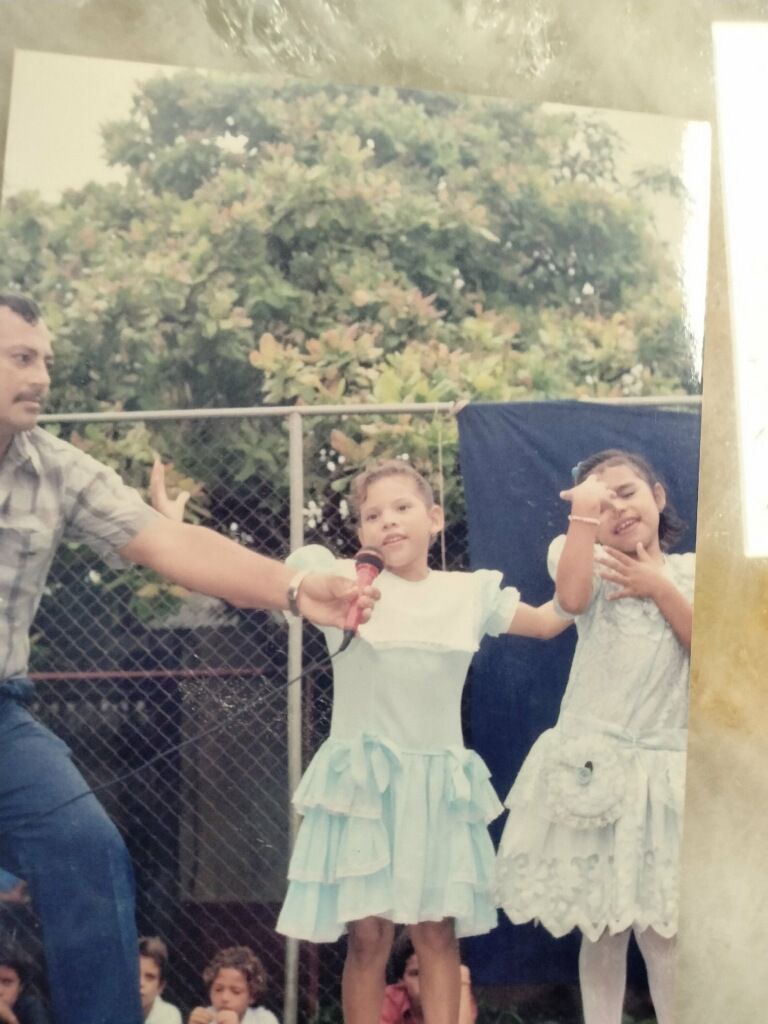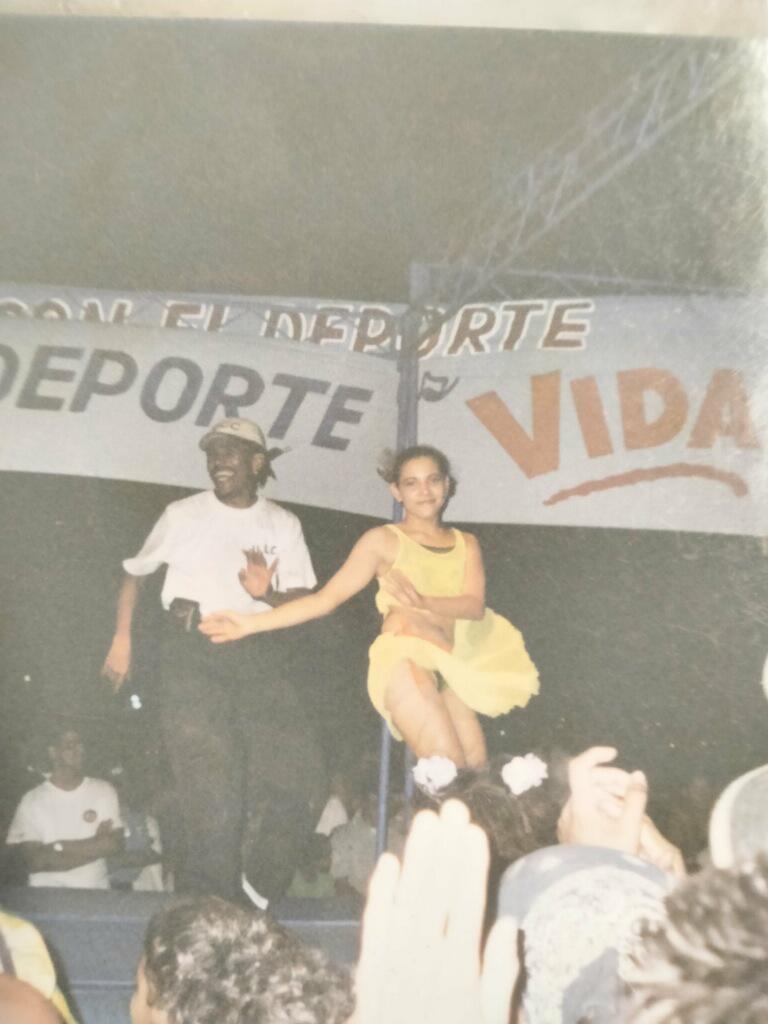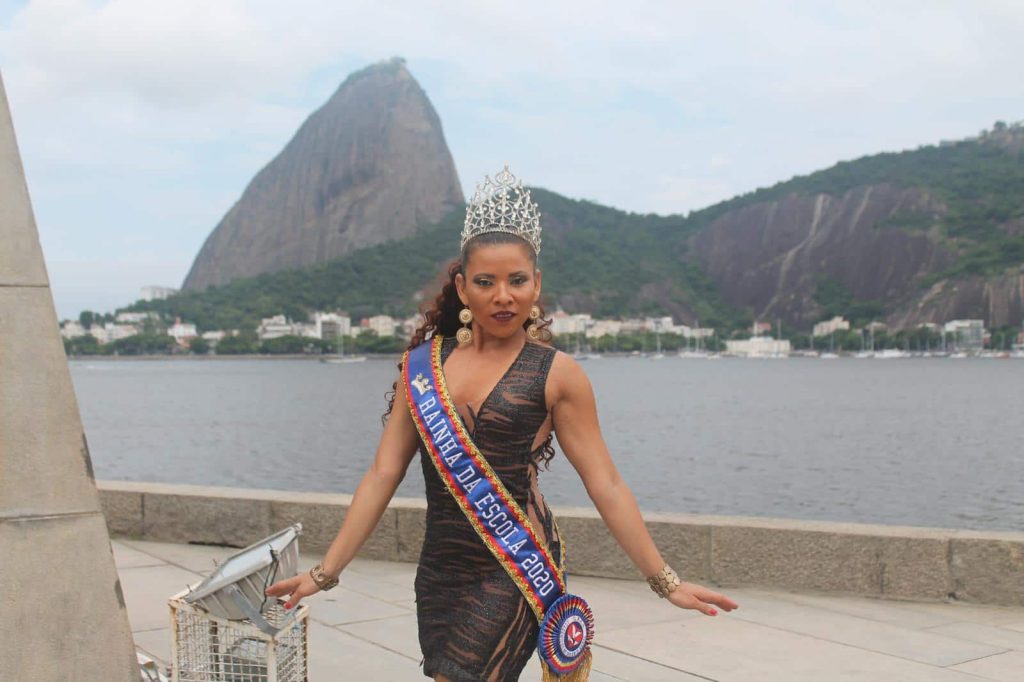26 de abril 2022

Children of Exile: The Births “Sowing Hope” in the Camp of Nicaraguan Farmers

PUBLICIDAD 1M
PUBLICIDAD 4D
PUBLICIDAD 5D
Her secret to standing out is Palo de Mayo, as she takes the Rio Carnival by storm becoming the first Nicaraguan drum queen of a prestigious school

The story of this great dancer begins on the stage of Hertylandia, a water park in Jinotepe, in the 1990s, when this amusement park, the largest in Nicaragua, had just opened in a country emerging from war. A little girl from Managua, about eight or nine years old, treasures the moment when her father grabbed her by the hand and put her on that stage to compete in a dance contest.
Feeling a mixture of fear and excitement, the girl heard her father’s voice: “I know you can do it, I believe in you. You are going to win”. The quebradita, the merengue, and the cumbia began to play, the fear disappeared and the girl became the winner. “From that moment, I believed in myself and that dancing was what I wanted to do for the rest of my life,” says the girl, now a 37-year-old woman.
Tania Daley has danced a wide variety of genres throughout Nicaragua, on stages in several U.S. cities and her mastery of the samba has made her a sensation in Brazil. This year she is the drum queen of Em Cima da Hora, one of the most prestigious samba schools in the country. On April 20, when the Rio de Janeiro Carnival begins, Daley will be in charge of the 700-member drum corps of the school's musicians.
She is the only Latina (non-Brazilian) and Nicaraguan to occupy such a prominent place as drum queen and she was also the queen of the Vigário Geral Samba School in 2020.
Her secret to excelling in Afro-Brazilian dance is one that lies in her Nicaraguan roots. “The samba has some moves that our Palo de Mayo has. It is a fast rhythm, I don't know how to explain it, but I have identified it. Maybe no one has connected the two cultures as I have. When I dance samba it's like I'm dancing palo de mayo. It's my secret,” she says with a laugh.
Tania is the eldest of three children of a married couple of painters from Managua: Luis Guerrero Lugo and Blanca Edgecombe. She was born in the capital, but her family moved to Granada when she was one year old. She was always dancing. African dance, contemporary, classical ballet, from preschool through high school, she kept dancing.

Since her childhood, Tania always loved stages, competitions, dancing and singing. Photo Courtesy.

“My first time dancing samba at the age of 16. I did my first performance in Pochomil, in a summer festival on the sand,” Tania says about this photograph. Photo: Courtesy.
It was time to go to college and it didn't have to be any different. At the Universidad de Ciencias Comerciales (UCC) she entered a degree in Tourism and Hotel Administration, but at the same time she was a member of the Folkloric Group Department. There she met a dance group from the Caribbean Coast that played the palo de mayo and the Brazilian batucada, a sub-genre of samba, with live musicians.
Tania danced all over the country, from city to city, with various dance companies, in horse parades, patron saint festivals, also with the Ballet Folklórico Nicaragüense. “I got it into my head that my dream was to be a professional dancer,” she says, although she admits it was difficult, “In Nicaragua I couldn’t make a living from dancing,” she adds.
For two years she pursued her degree while dancing every day, until one day she fell in love and married an American who had come to Granada to practice his Spanish. She was 18 years old and in love, so she didn't think much about it and moved with him to Chicago, Illinois, USA, where she did a “minor program”, that is, she got a technical degree in Dance.
The move was not easy, as she had to leave her university and her dance group. “I thought I was never going to dance again,” she recalls. She also had to learn English. It was in those classes that she made a Brazilian friend who reconnected her with samba. “I didn't speak any English and a Brazilian girl came along who was also lost. We became good friends, she spoke to me in Portuguese and I spoke to her in Spanish, and one day she invited me to see a samba show,” she recalls.
Life sometimes brings recurring elements that arise when least expected and most needed, and in Tania's life, competitions are the thing that make a difference. That night there was a contest and, just as it happened on the Hertylandia stage, Tania was declared the winner. “And guess what? The show band booked me right then and there,” she exclaims.
She found herself in Chicago with a large Brazilian community that lived and breathed samba and within which she participated, year after year, in the competitions to be queen. In 2008 she became Chicago's samba princess, then continued competing and in 2013 she was crowned queen.
Since then, Tania has danced samba every day, but without forgetting her Nica roots. The dancer now lives in New Orleans, Louisiana. Her mother and siblings also live there, and Tania moved there after her divorce. Her father passed away in 2006. She has a 12-year-old daughter who also loves to dance. “She dances, sings, plays piano and I am training her to be a salsa world champion,” she says proudly.
Tania regularly visits Nicaragua and her university, UCC, which has sponsored her travels and promotes the artist's story as a success story. She loves to walk around her city, Granada, and eat a vigorón in the park.
Being a migrant has been both a challenge and an advantage. On the one hand, she has faced discrimination, even among Latinos in the United States; but on the other hand, she is proud of herself, of her identity, and has taught folkloric dance to students of multiple nationalities.
Tania had a dance academy, but had to close it due to the pandemic. Today she is a personal fitness, pilates, yoga and aerobics instructor, and participates in the Carnaval in Brazil annually since 2015, when she was invited by Brazilian singer Dill Costa to dance in her group.
Her first time at the big event was with the 3500-member Viradouro School “I was in love,” she recalls. It was the winning school of the Carnival in 2020.
Tania made friends with a Brazilian queen of one of the samba schools, who selected her to be the queen of her school Acadêmicos de Vigário Geral in 2020. “Everyone was frizzled. No one knew where I had come from. When Carnival started, the directors of the samba schools, dancers, reporters, were in love with my moves,” Tania assures.

Tania won the title of School Queen in 2020. Photo: Courtesy
She has sought to polish herself to go from being a regular dancer, to the most outstanding. “Every time I come, I hire the queens to give me classes, I hire the teachers, I come to train myself,” she explains, via video call from Rio de Janeiro.
It was thus that the dancer began to be recommended among the guild to continue participating in privileged positions within the schools that compete in the Rio Carnival.
It has not been easy, Tania admits, while confessing that the world of dance and samba is a territorial one in which there are those who question that she is not Brazilian. “You have to put up with a lot, but my dad always told me to never give up,” she says.
The Nica samba queen had her presentation on April 20, when the Rio Carnival began. She gives this interview while she is moving from one place to another, in the middle of the final preparations, the costume fitting, the last rehearsals. She has practiced and sung her school's theme song for more than two years and is anxiously waiting for them to take first place among some twenty participating schools.
This Wednesday she will dance non-stop in front of the jury and the tens of thousands of people who will gather there for the great return of the Brazilian party that was interrupted by the coronavirus. “It’s an immense joy, I can’t explain it,” she points out. Tania will be there, dancing samba, shining as only she knows how, with the distinctive Palo de Mayo style of her homeland.
This article was originally published in Spanish in Confidencial and translated by our staff
PUBLICIDAD 3M
Periodista nicaragüense desde 2007, con experiencia en prensa escrita, televisión y medios digitales. Tiene una especialización en producción audiovisual y una maestría en Medios de Comunicación, Estudios de Paz y Conflicto de la Universidad para la Paz de las Naciones Unidas. Fundadora y editora de Nicas Migrantes, proyecto por el cual ganó el Impact Award 2022 del Departamento de Estado de EE. UU. Ha realizado coberturas in situ en Los Ángeles (Estados Unidos), México, El Salvador, Guatemala, Nicaragua y Costa Rica. También ha colaborado con France 24, The Guardian, Al Jazeera, BBC World Service. Ha sido finalista y ganadora de varios premios nacionales e internacionales, entre ellos el Premio Latinoamericano de Periodismo de Investigación Javier Valdez, del Instituto Prensa y Sociedad (IPYS), 2022.
PUBLICIDAD 3D